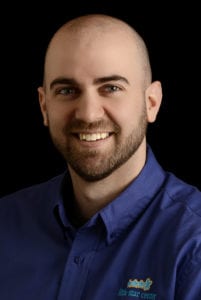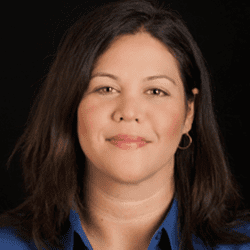Challenging Behavior Clinic
Meet our Staff
Jared Smith MA, MS, BCBA
Jared received his MA in philosophy from Kent State University and his MS in psychology with a concentration in ABA from Purdue University Global. He is a Board-Certified Behavior Analyst with 5 years of experience in the field working with individuals with autism spectrum disorder and other developmental delays who engage in moderate to severe challenging behavior. Jared’s background is in clinic-based services where he worked primarily with teens and adults with autism spectrum disorder focusing primarily on the assessment and treatment of challenging behaviors and teaching functional alternatives. Jared currently runs the challenging behavior clinic at LittleStar.
Jesse Logue, Ph.D., BCBA-D, HSPP
Dr. Logue received his Ph.D. in psychology from Illinois State University. He completed his doctoral internship and fellowship at the Kennedy Krieger Institute/Johns Hopkins University School of Medicine, working with children displaying severe/challenging behavior. During this
time, Jesse became a BCBA-D and a licensed psychologist. Jesse then spent several years expanding ABA services in North Iowa as the Clinical Director of the One Vision Children’s Autism Center and serving as President of the Iowa Association of Behavior Analysis. He is currently the Chief Operations Officer at LittleStar ABA Therapy and oversees LittleStar’s Challenging Behavior Clinic.
Danyl Epperheimer, MS, BCBA, LBA (KY)
Danyl Epperheimer received her master’s degree in behavior analysis from Southern Illinois University and is currently finishing her PhD from the Chicago School. With over 20 years of experience in the field, Danyl’s experiences include working with the Department of Children and Families Services, supporting adolescents with traumatic brain injuries at the Center for Comprehensive Services, providing behavior management services for all disabilities through the Indiana Medicaid program, and serving as President of the Hoosier Association for Behavior Analysts. Since 2010, she has focused on ABA-specific services at LittleStar ABA Therapy, serving as a BCBA, Clinical Director, and now as the Vice President of Clinical Operations. Danyl currently oversees all ABA services, including the Challenging Behavior Clinic.
About the Challenging Behavior Clinic
The Challenging Behavior Clinic (CBC) is a unique program dedicated to the assessment and treatment of children and young adults with autism spectrum disorder who engage in severe challenging behavior through the principles of applied behavior analysis. Common types of behavioral challenges treated in the CBC include self-injury, aggression, property destruction, tantrums and other explosive outbursts.
The CBC utilizes behavior analysis in the assessment and treatment of behavioral challenges. Applied behavior analysis is a field of psychology that relies heavily on:
• The direct observation and measurement of behavior
• A thorough understanding of the relationship between behaviors and the events surrounding them (for example, what happens before and after the behavior occurs)
• A careful evaluation of behavior change
The goal of behavior analytic treatment is to decrease challenging behaviors and increase appropriate behaviors. This approach, developed from decades of research, demonstrates the effectiveness of these principles in changing behavior. During admission, your child will participate in behavioral assessment and treatment sessions with the behavioral team and/or you at each visit.
Our Process
Step 1: Intake and Initial Assessment
After reaching out, a member of our team will be in touch with you gather insurance information and conduct an initial assessment. This assessment will consist of both a parent interview and some structured assessments, as well as the direct observation of your child. Following this intake, a request for authorization will be submitted to your insurance using the information from the initial assessment. Once services are authorized, we will reach out to schedule your child’s sessions.
Step 2: Functional Behavioral Analysis
A critical part of the assessment process involves conducting a functional behavioral analysis. The purpose of this assessment is to identify things in the environment that affect your child’s challenging behaviors. For example, children may engage in challenging behavior to get attention, to avoid tasks, or to get things they want. The functional analysis helps us to systematically identify these environmental factors and develop a treatment program.
Step 3: Develop Treatment Plan
After the functional analysis has been completed, treatment options will be discussed with you. To start, the effectiveness of the treatment will only be evaluated during behavioral therapy sessions, which are usually conducted in a treatment room (padded or non-padded) or a natural session room setting with camera recordings. This allows the team to observe your child without the distraction of onlookers. The padded environment lets the team see behaviors, such as head banging or body slamming, without injury to the child. Once a treatment plan is shown to be effective in the behavioral therapy sessions, staff will begin to use the treatment outside the session room and in the community. This process is known as generalization.
Step 4: Caregiver Training
The BCBA will conduct extensive training sessions with you before sending the treatment home for you to implement. These sessions, a critical part of the treatment program, are conducted to ensure that what is done during day treatment services will be carried out by the family and other caregivers. We want the treatment plan to be successful at home and in the community, and we want you to feel very comfortable with the plan; therefore, we require that caregivers participate in these training sessions. Sessions may include visits, if possible, to the home, school, and other community settings.
Step 5: Follow-Up
For most patients, a BCBA will follow-up with your child from the CBC for up to two years after discharge. (Insurance authorization is required.) This will ensure continuity of the program in home and school environments. As part of our ongoing efforts to improve our program, we would like to contact you periodically during the first two years following the discharge of your child. A senior member of the CBC staff will contact you with questions about your child’s behavior and implementation of the behavioral plan.
Contact Us



